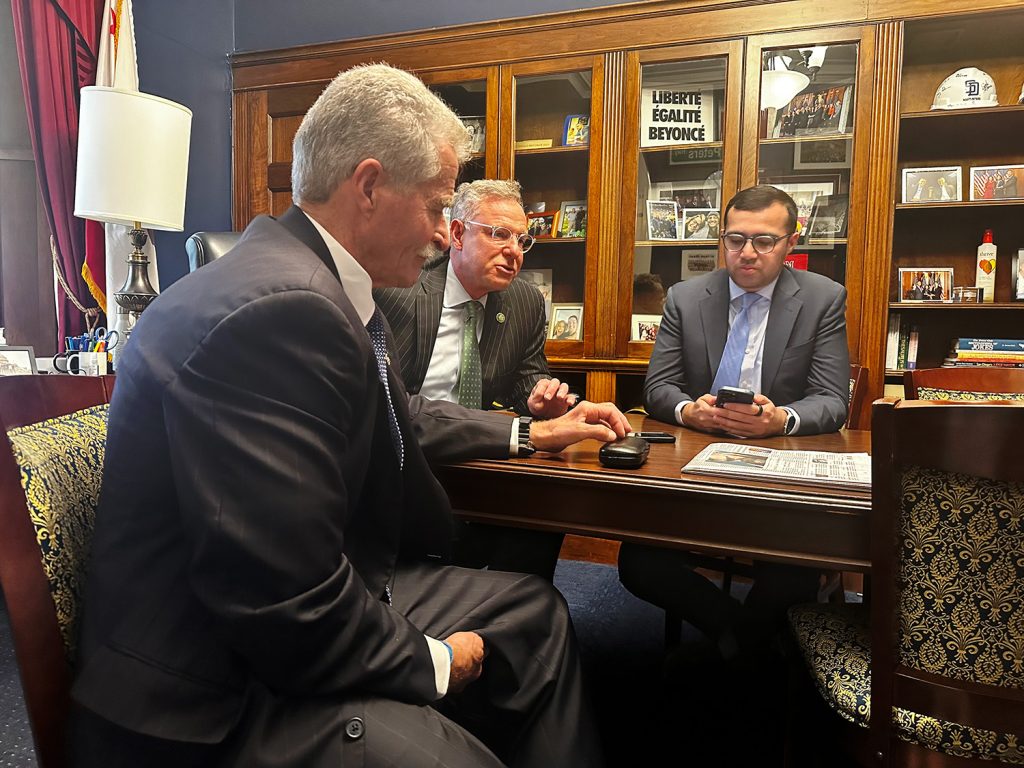
Coronado resident and retired Navy SEAL Capt. Dan’l Steward attended the State of the Union address to highlight the need for funding to address the Tijuana sewage crisis.
He was invited by Representative Scott Peters (CA-50), who has been a vocal advocate of securing $310 million in additional funding to prevent the millions of gallons of sewage from Tijuana that spills into the ocean daily.
“The influence of the sewage has been tremendous, and it’s gotten progressively worse” said Steward, who has gotten sick after swimming in the ocean both during and after his service in the Navy. His daughter, too, contracted MRSA after surfing in the ocean, he said.
Peters in February asked the U.S. Navy to substantiate how much the sewage crisis impacts its training operations. In 2022, the Navy canceled 20 in-water training events, a jump from the prior year, in which there were no cancellations.
“This has been a problem for decades, but it’s much worse now,” Peters said. “The number of days that this is a problem has ballooned.”
The Navy runs its training program for SEAL candidates in Coronado. The Basic Underwater Demolition/SEAL (BUD/S) training course is a notoriously grueling program for the elite force.
“If you’re familiar with the SEAL ethos, there’s a line that says, ‘I will not quit,’” Steward said. “It’s the mentality of the SEALs: They will not quit, they will not give up on anything. If there’s a problem with their training environment, they’ll work through it, even to their own detriment.”
But it’s not just the SEALs who are impacted, Steward said. Plenty of military personnel spend time in, on, and around the water, and with studies showing that the bacteria from sewage aerosolizes, its impact is inescapable, he and Peters say.
“Training is directly related to national readiness,” Steward said. “This is a national security issue.”
Peters has been pushing Congress to approve an additional $310 million in funding to address the crumbling infrastructure that causes the sewage flows. It’s difficult to explain to people 3,000 miles away how dire the situation is, he said, so hearing from Steward is illustrative.
Peters also requested a San Diego State University School of Public Health report that investigated the impact of sewage on the area. Its authors called the issue a “pressing public health crisis.”
“If this was happening in Chesapeake Bay, it would be solved tomorrow,” Peters said. “But it’s hard to explain something that’s happening 3,000 miles away. (…) This is one of the great environmental catastrophes of our time.”
Peters said that, once his colleagues understand the problem, they support solving it.
“We have seven retired Navy SEALs serving in Congress,” Peters said. “Even though it happens that all of them are Republicans who will not support the larger asks from President Biden, they all support funding the sewage infrastructure.”
Peters said he is confident the government will allocate the necessary funds to rebuild infrastructure at the border — thanks not only to politicians, but also to the fervent community advocates who have been pushing the issue.
“The local advocacy has been so helpful,” Peters said. “People don’t just want to hear from members of Congress; They want to hear about the people experiencing it.”




